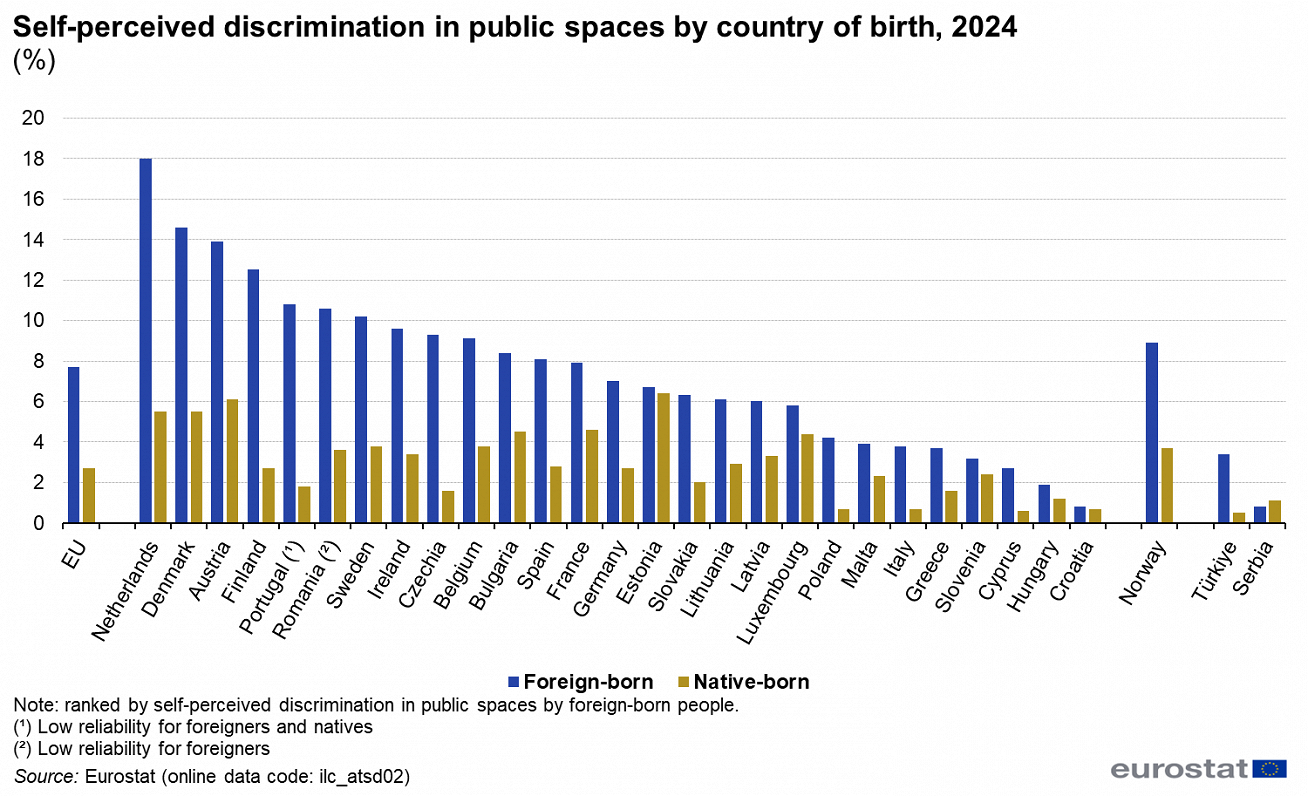Foreign-born persons are about twice as likely as native-born persons to feel they are being discriminated against in Latvian public spaces, according to Eurostat data published July 28th.
In 2024 in the European Union, 5.9% of people aged 16 and over reported feeling discriminated against when looking for housing; the rate was higher among people at risk of poverty or social exclusion, reaching 10.1%, compared with 4.7% for those not at risk.
4.1% of people without disabilities (activity limitations) have felt discriminated against when interacting with public services. For people with a disability, the share was more than twice as much, 9.3%.
People born abroad were nearly 3 times more likely to feel discriminated against in public spaces (7.7%) than native-born (2.7%).
Interestingly, in Latvia native-born people more often feel discriminated against (3.3%) than the EU average, but foreign-born people are less likely to feel discriminated against (6.0%). While the figures may sound quite high, by European standards, the amount of discrimination encountered by foreigners is relatively low in Latvia, as the graph above demonstrates.
Just as interesting are the equivalent figures for the other two Baltic states. In Lithuania, 2.9% of native-born people feel they are discriminated against and 6.1% of foreign-born people feel they are discriminated against. But in Estonia there is almost no difference between the two groups: 6.4% of native-born people feel discriminated against while 6.7% of foreign-born people report the same thing.
Select text and press Ctrl+Enter to send a suggested correction to the editor
Select text and press Report a mistake to send a suggested correction to the editor
Tell us about a mistake
